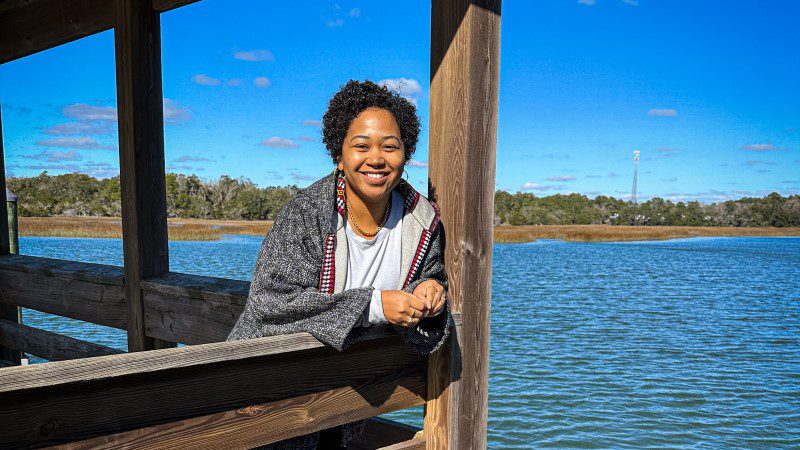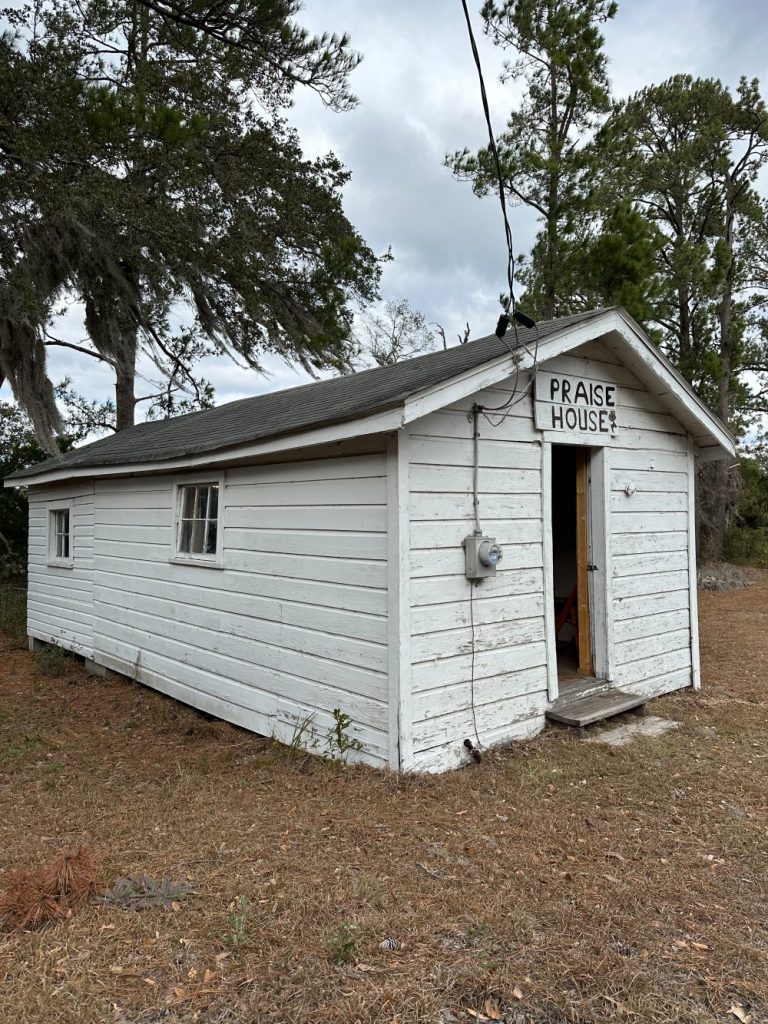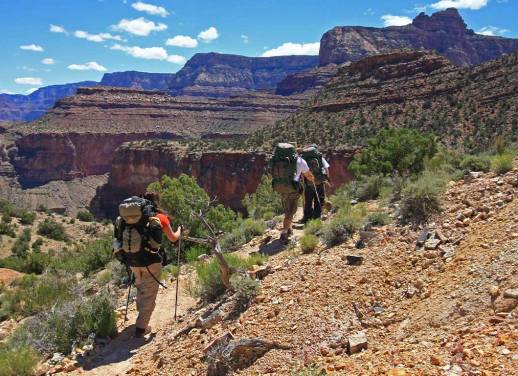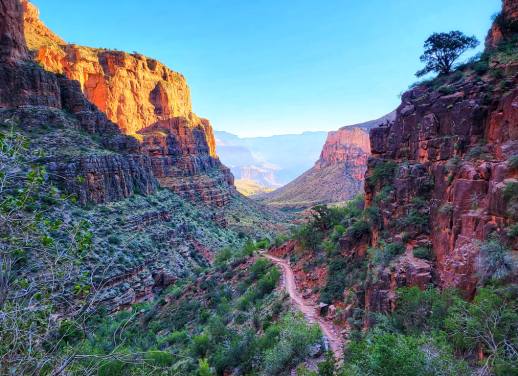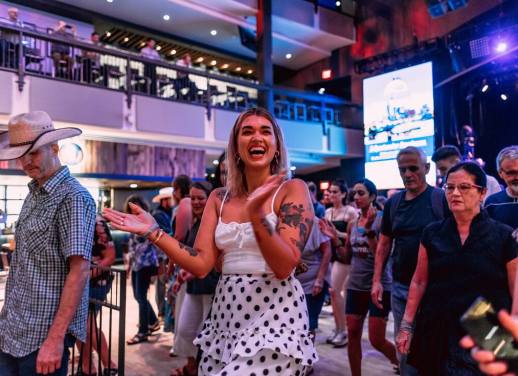“It is what it is, but what it is is good to know where you come from.”
The statement seems to reverberate through the small, hundred-year-old wooden shack we sit in on St. Helena Island in South Carolina. I huddle on a wooden bench on a chilly winter afternoon, listening to local pastors tell us about the history of praise houses on the island, like the Mary Jenkins Community Praise House where we sit.
Originally segregated places of worship during enslavement in the United States, praise houses eventually took on the role of meeting places, community centres and more for local Black communities on the island. Their existence raises questions about the role of religion, the development of segregated community institutions, the meaning of progress and so much more.
And as we were so deftly reminded that day, one of three days I spent experiencing Intrepid’s new Charleston to Savannah: Exploring Gullah Geechee Culture trip, while the history of praise houses and Gullah Geechee communities is often painful, it’s also vital to the story of the United States.
Exploring Gullah Geechee heritage
During our short trip from Charleston, South Carolina, to Savannah, Georgia, we explored complex questions related to who gets to claim and be included in tellings of American history through historical stops, local food, musical performances and more.
As we learned about the history of the area and the Gullah Geechee people, descendants of West and Central Africans enslaved and brought to the lower Atlantic states who developed a unique culture and language, we came to understand a foundational part of the story of the United States: there is no US as we know it without colonisation and slavery, just as there is no popular American culture without Black culture.
As much as I enjoyed myself and thought many times over that everyone should have the chance to take a trip like this, it’s impossible to disconnect this experience from surging debate in the US about exactly how much Black history is acceptable to teach. Because while there was so much beauty, ingenuity and community packed into our itinerary, this trip also raises questions without answers. Just as I suspect the idea of teaching Black history raises for others.
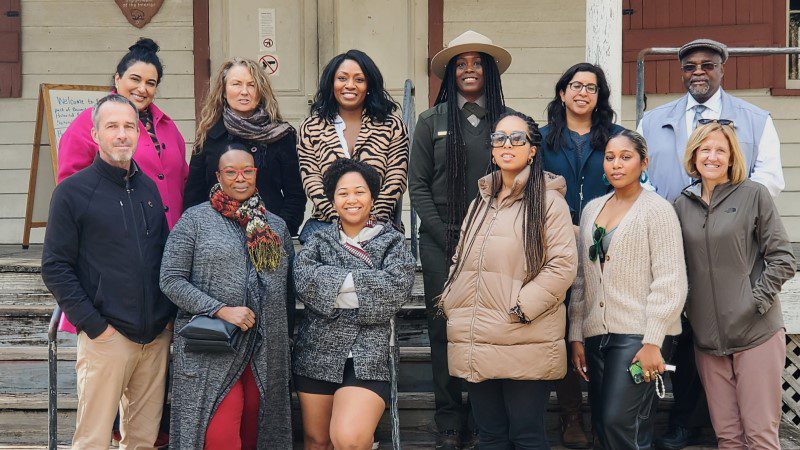
Framing the debate
Is it really good to know where you come from? For some reason, that’s a contentious question in the US.
I’ve watched as the country I was born and raised in debates my cultural history as “indoctrination”, part of an “agenda”, and worse. The Florida Department of Education recently rejected an Advanced Placement African American Studies course, an interdisciplinary course that spans topics ranging from the “Origins of the African Diaspora” to “Black Women’s Rights and Education”. Educators are struggling with parents, laws and even other teachers who seek to bar Black history or the teaching of any social or historical topics that might make students “uncomfortable.” Call it a culture war, call it cultural backlash, call it whatever you want, but many societal debates of the here and now are deeply invested in shaping how we think of, speak about and remember the past.
This country has yet to fully reckon with the fact that its history includes torture, human trafficking and enslavement, colonisation, segregation, lynchings, murder and more. Because if we accept that painful reality, what does it say about American exceptionalism and the American dream? What does it say about the “melting pot” that is so often hailed as a symbol of the US’s acceptance of diversity?
For me, this cognitive dissonance is an inescapable part of the Black experience in the US: to be at once foundational to the development of American society and culture yet debated as if your history is somehow tainted.
Travel as an alternate path to education
When schools won’t teach it, we’re left to educate ourselves elsewhere. I certainly did. My public school education had sparse lessons on Black history. What we did learn focused on just a few primary figures, such as Rosa Parks and Dr. Martin Luther King Jr., and emphasised their grace and magnanimity. The Black American experience was presented as if there were but a few small hiccups, through no fault of anyone’s, that had been fully overcome through song and faith. This is an example of the “comfortable” narrative that school systems might lead students to believe in. One that I, at one point, certainly used to frame the world around me.
This sanitised version of American history that so many are fighting to preserve, was jarringly at odds with the richness of our experiences in South Carolina and Georgia with Intrepid. Our trip reminded me of the power of travel to challenge us and reshape our perceptions.
I don’t say this to suggest that travel forces us to learn about different perspectives and cultures. It’s not a magic balm that allows us to escape from ourselves, our beliefs, our fears or societal pressures. To some extent, I deeply dislike many travel narratives because of that simplistic framing. Travel can be extractive and damaging to local communities, and we, as travellers, can easily replicate our biases and worst behaviours in a new place. Yet, I do think travel can allow us to reframe how we view ourselves.
School lessons that almost skipped over enslavement and its brutal, inhumane underpinnings entirely couldn’t stand the test of touring the Sea Islands and learning about communities where some families are still living on the same land that their foreparents lived and laboured on as enslaved people.
Imagery of manicured plantations, both the figurative one I learned about in school and the very real one we passed on our tour in South Carolina, withered next to a large hand-painted wooden sign whose black block letters shone on a white background: “Sacred burial site of our African ancestors”. It marks the grave site of an estimated 300 enslaved people who had once toiled on the grounds of the imposing, white-pillared plantation across the road.
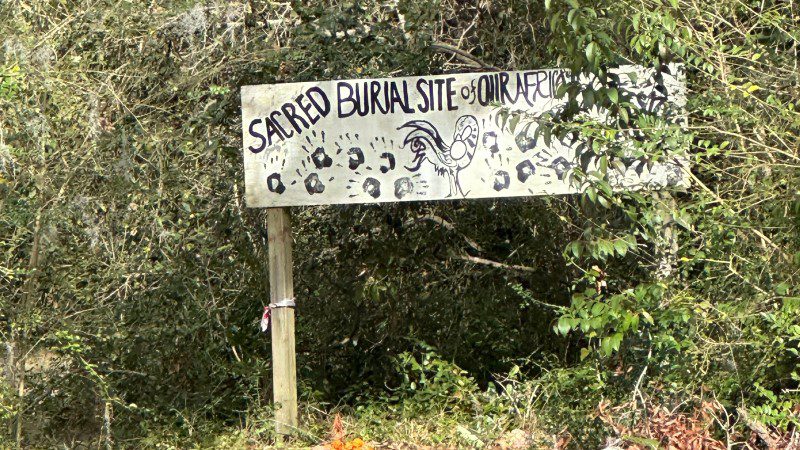
As we toured Helena Island and then Pin Point Heritage Museum outside of Savannah, we learned about Gullah Geechee communities along the coast, founded by formerly enslaved people who used whatever leverage they could access after enslavement to purchase a property. Often only able to purchase land in areas once considered undesirable, those same communities now face pressures that threaten their culture and land rights. Developers, rising taxes, eminent domain and other forces now seem to squeeze them from all sides.
What if this was the history taught in schools? One in which enslaved peoples, who brought immense skills and expertise to the US, helped build its economy and institutions through horrific and inhumane circumstances and then formed an integral part of the national culture. How would that be reconciled with the present-day reality that Black Americans continue to face widespread and systemic discrimination, attacks on our cultural practices and land, and debates about the suitability of our history for classrooms? What would that say about our progress as a nation? How might it shake the foundations of our institutions?
Those are the questions that some school boards, parents and legislators don’t want students asking. They’re questions that don’t have easy answers, whether they’re asked in a classroom or out travelling. They’re questions that likely lead to only more questions. But that doesn’t mean they’re not worth asking.
Anela travelled as a guest of Intrepid to get a taste of our Charleston to Savannah: Exploring Gullah Geechee Culture trip. Follow her on Instagram at @feedthemalik.

